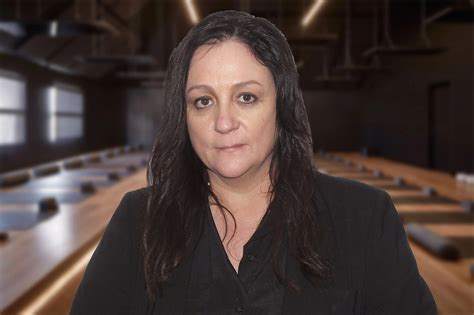A Quote by Herman Melville
Whenever we discover a dislike in us, toward any one, we should ever be a little suspicious of ourselves.
Related Quotes
To recognize our bias toward error should teach us modesty and reflection, and to forgive it should help us avoid the inhumanity of thinking we ourselves are not as fallible as those who, in any instance, seem most at fault. Science can give us knowledge, but it cannot give us wisdom. Nor can religion, until it puts aside nonsense and distraction and becomes itself again.
The West doesn't have to love us. In fact, we should ask ourselves more often why people are so suspicious of us. After all, the West isn't a charity organization. How have we been perceived for centuries? As a huge, warlike realm ruled by despots - first by the czars and then Bolsheviks. Why should anyone have loved us? If we want to be accepted, we have to do something in return. And it's an art that we have yet to master.
Parenting forces us to get to know ourselves better than we ever might have imagined we could--and in many new ways. . . . We'll discover talents we never dreamed we had and fervently wish for others at moments we feel we desperately need them. As time goes on, we'll probably discover that we have more to give and can give more than we ever imagined. But we'll also find that there are limits to our giving, and that may be hard for us to accept.
Nevertheless, our constant efforts to lower our estimate of the present world should not lead us to hate life or to be ungrateful toward God. For this life, though it is full of countless miseries, deserves to be reckoned among the divine blessings which should not be despised. Therefore, if we discover nothing of God's goodness in it, we are already guilty of no small ingratitude toward him.
We all know of course, that we should never ever ever ever ever ever ever ever ever ever ever ever ever ever ever ever ever ever ever ever ever ever ever ever ever ever ever ever ever ever ever ever ever ever ever ever ever ever ever ever ever ever ever ever ever ever ever ever ever ever ever ever ever ever ever ever fiddle around in any way with electrical equipment. NEVER.
Pride is the switch that turns off priesthood power. Humility is a switch that turns it on . . . . Some suppose that humility is about beating ourselves up. Humility does not mean convincing ourselves that we are worthless, meaningless, or of little value. Nor does it mean denying or withholding the talents God has given us. We don't discover humility by thinking less of ourselves; we discover humility by thinking less about ourselves. It comes as we go about our work with an attitude of serving God and our fellowman.
But how can we love someone if we don't like him? Easy-we do it to ourselves all the time. We don't always have tender, comfortable feelings about ourselves; sometimes we feel foolish, stupid, asinine, or wicked. But we always love ourselves: we always seek our own good. Indeed, we feel dislike toward ourselves, we berate ourselves, precisely because we love ourselves; because we care about our good, we are impatient with our bad.
There is a great destructive force that comes upon us when we start comparing ourselves in the flesh with what we could be spiritually. We should never compare what we are with what we could be, because we will always be down on ourselves when we do this. Just look to Jesus and what He is. As long as we look to Jesus we will go toward Him. When we look at our inferiority we will go toward it.
I happen to believe the world will change only when we change ourselves. And that starts with finding ourselves: learning to quiet the clamor in our minds and the voices of everyone around us and move toward what feels right – toward the things we know, for reasons we can’t explain, that we’re mean to do, the things that makes us feel alive.
Some of us are darkness lovers. We do not dislike the early and late daylight of June, but we cherish the increasing dark of November, which we wrap around ourselves in the prosperous warmth of wood stove, oil and electric blanket. Inside our warmth we fold ourselves, partly tuber, partly bear, in the dark and its cold - around us, outside us, safely away from us. We tuck ourselves up in the comfort of cold's opposite, warming ourslves by thought of the cold, lighting ourselves by darkness's idea.







































